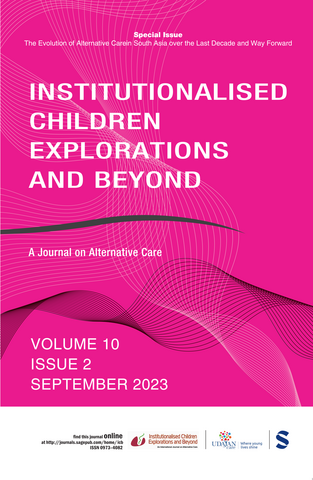Abstract:
Article 20 of the Child Rights Convention (CRC) confers responsibility upon states for ensuring such care in situations where children are ‘temporarily or permanently deprived of his or her family environment’. Bangladesh, being among the first two countries in Asia to ratify CRC, enacted Children Act 2013 to implement the CRC standards. The Act has dedicated a chapter on alternative care covering type of disadvantaged children, alternative care options, child protection mechanism including gatekeeping measures, referral mechanism and the periodic review of alternative care arrangement.
Though there is no defined alternative care system yet but several alternative cares such as kinship care, family-based care, family like care, residential/institutional care, etc. have been facilitated by Government, NGOs and private sectors. Challenges remain in assuring quality alternative care for all children including lack of resources and capacity, inadequate number of social welfare workforce; caregivers, limited access to mental health and disability services.
Based on the literature and observation, this article explores ideas on the alternative care of children, particularly relating to its modalities and challenges in the context of Bangladesh. The authors opine that the children’s best interest cannot be achieved when a group grows without quality care.

